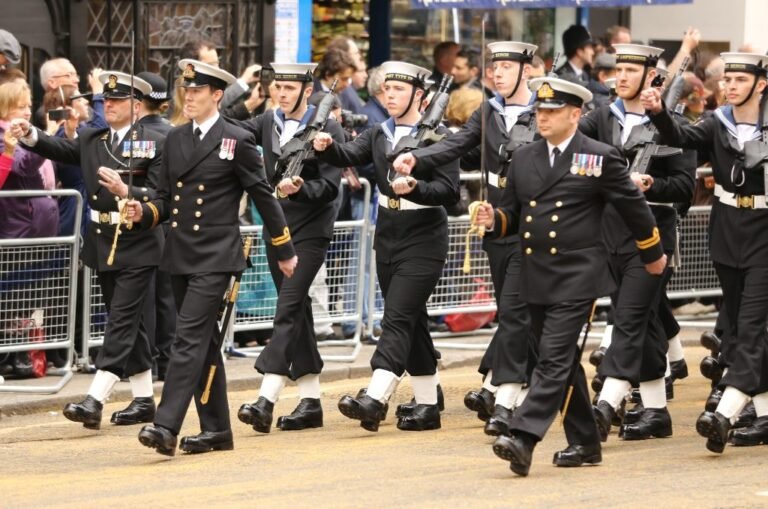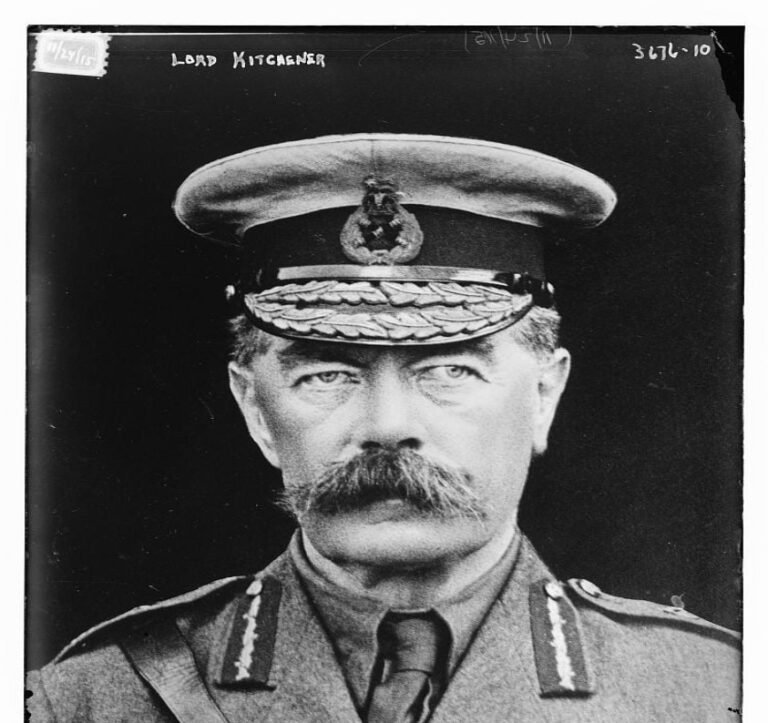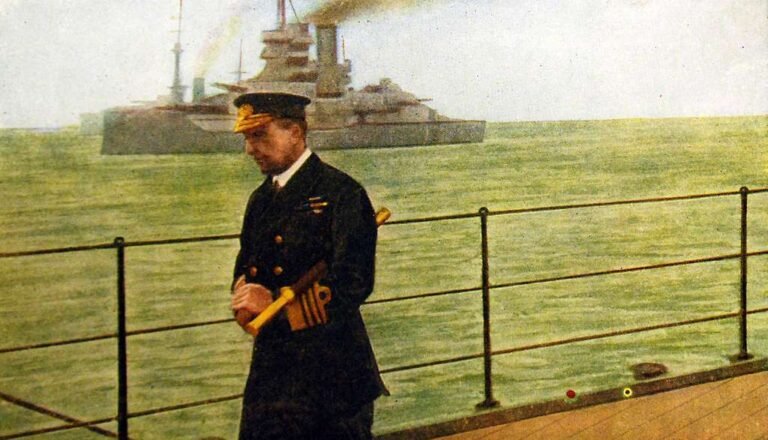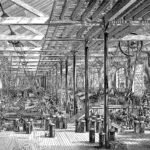General Sir John Moore was a British Army officer known for his bravery and leadership. He played a significant role in the Napoleonic Wars, leaving a lasting legacy.
Born in 1761, Moore’s military career began at a young age. He quickly rose through the ranks due to his strategic brilliance and dedication. Moore is best remembered for his actions during the Peninsular War, particularly the Battle of Corunna, where he met his untimely death.
His efforts not only influenced military tactics but also inspired future generations of soldiers. Moore’s life and career offer valuable insights into the qualities of a true leader and the sacrifices made in the name of duty. Through his story, we gain a deeper understanding of courage and commitment in the face of adversity.
Early Life
The early life of General Sir John Moore is a captivating tale that sets the stage for his remarkable military career. Born into a family with a rich history, Moore’s childhood was a blend of privileged education and early exposure to military life. Understanding his formative years provides insight into the qualities that made him a revered leader.
Childhood And Family
John Moore was born on November 13, 1761, in Glasgow, Scotland. His father, Dr. John Moore, was a respected physician and writer, and his mother, Jean Simson, came from a family of scholars.
Growing up in such an intellectually stimulating environment, Moore was encouraged to pursue knowledge and develop a strong moral character. His father’s diverse career and connections often brought young John into contact with various influential figures of the time.
Can you imagine the kind of conversations that might have happened at their dinner table? Discussing not just local politics but also the broader European events shaping their world. These early experiences undoubtedly influenced Moore’s worldview and his approach to leadership.
Education And Military Interest
Moore’s education began at the High School of Glasgow, where he displayed a keen interest in both academics and physical activities. His passion for learning was matched by his love for adventure, a combination that would serve him well in his future military career.
At the age of 11, he traveled with his father across Europe. This journey included visits to France and Switzerland, providing him with exposure to different cultures and military practices. Such experiences were rare for children of his age and background.
By the time he returned to Scotland, Moore had developed a fascination with the military. His father’s connections helped him secure a commission as an ensign in the 51st Regiment of Foot at the age of 15.
Imagine being a teenager and already stepping into a role that required discipline and leadership. How would you have handled such responsibility at such a young age? Moore’s early start in the military instilled in him a deep sense of duty and commitment.
His early education and military interest laid a solid foundation for the illustrious career that lay ahead. It is these formative experiences that shaped General Sir John Moore into the iconic leader he eventually became.
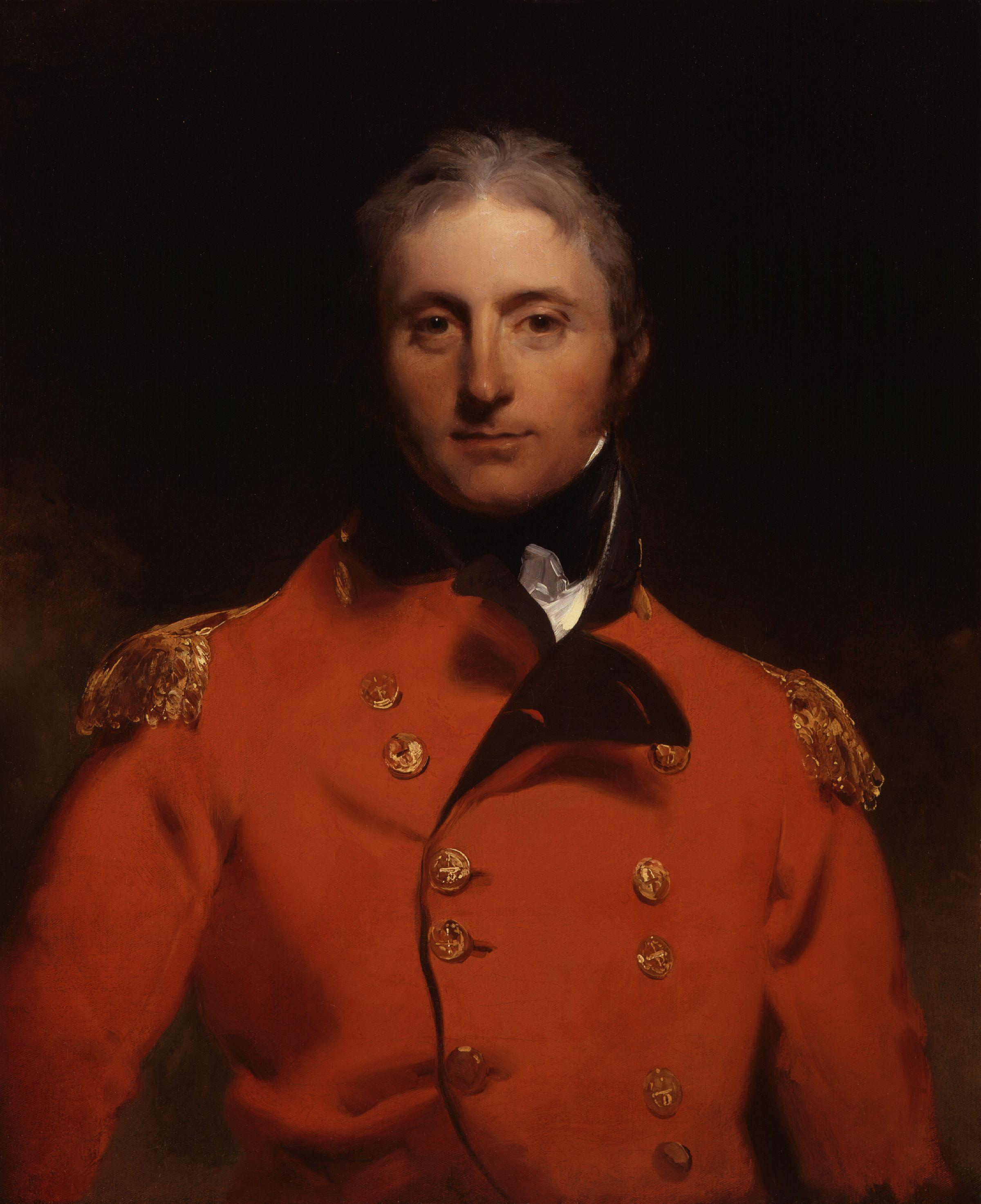
Credit: en.wikipedia.org
Military Beginnings
General Sir John Moore is a name that resonates with military valor and strategic brilliance. Understanding his early military beginnings offers a glimpse into how he became one of the most respected generals in British history. Let’s delve into his first commission and the early campaigns that shaped his career.
First Commission
John Moore’s military journey began at the tender age of 15. He received his first commission as an ensign in the 51st Regiment of Foot. Imagine starting your career so young, in a world of discipline and duty.
His early days were filled with the rigors of military training. These formative experiences built the foundation for his future leadership. It’s fascinating to think about how young he was when he first donned his uniform.
Early Campaigns
Moore’s initial campaigns were crucial in shaping his tactical acumen. He saw action in Corsica, where he served under General Charles Stuart. This period was a learning ground for him.
One notable campaign was the Battle of Calvi in 1794. Moore’s courage and strategic thinking during this battle earned him recognition. His actions here marked the beginning of his reputation as a capable and brave officer.
Another significant early campaign was in the West Indies. The harsh conditions and fierce battles tested his resilience. These experiences honed his skills and prepared him for future challenges.
How would you handle the pressure at such a young age? Moore’s early military beginnings remind us that great leaders often start with humble and challenging experiences. These early trials and triumphs are what build a strong foundation for future success.
Rise To Prominence
General Sir John Moore’s rise to prominence is a tale of dedication, skill, and innovation. His journey from a young officer to a respected general is inspiring and filled with lessons that resonate even today. Let’s explore the key moments that shaped his illustrious career.
Role In The French Revolutionary Wars
John Moore’s critical role in the French Revolutionary Wars marked the beginning of his rise. He showcased his strategic brilliance and bravery in numerous battles. His leadership at the Battle of Toulon was particularly noteworthy.
Many officers faced challenges, but Moore’s adaptability set him apart. He quickly learned to anticipate enemy moves. This skill earned him respect and rapid promotions.
Do you think you could adapt quickly in a high-pressure situation like Moore? His ability to stay calm and think strategically under pressure was a key factor in his success.
Tactical Innovations
Moore was a pioneer in military tactics. He understood the importance of training and discipline. His innovative training methods at Shorncliffe Camp revolutionized the British Army.
He introduced light infantry tactics, emphasizing speed and flexibility. These tactics were vital in battles where traditional methods failed. His approach was not just innovative but practical, leading to significant victories.
Imagine being in a time when traditional methods were the norm. Would you have the courage to introduce new tactics? Moore’s willingness to innovate made him a respected leader and a game-changer in military history.
His legacy in tactical training is still relevant today. Modern armies continue to benefit from his forward-thinking approach. How can you apply Moore’s innovative spirit to your own challenges?
Leadership In The Peninsular War
General Sir John Moore was a remarkable leader during the Peninsular War. His leadership style was both innovative and inspiring, setting him apart from his contemporaries. Let’s delve into how his strategic decisions and his impact on troops made a significant difference.
Strategic Decisions
General Moore was known for his keen strategic mind. He often made decisions that others deemed too risky. His retreat to Corunna, though criticized, was a masterclass in strategic withdrawal.
He prioritized the safety of his troops over blind allegiance to commands. This decision saved countless lives and preserved the fighting force. Have you ever had to make a tough call under pressure?
Moore also focused on mobility. He ensured his troops could move quickly and efficiently. This flexibility often caught the enemy off guard.
Impact On Troops
His leadership had a profound impact on his troops. Moore was deeply respected and admired by his soldiers. They trusted him because he led by example and showed genuine concern for their well-being.
His emphasis on training and discipline resulted in a well-prepared army. This preparation was evident in their performance on the battlefield. How often do we see leaders invest in their team’s growth today?
Moore’s ability to boost morale was unparalleled. Even in the face of adversity, his troops remained motivated and loyal. He knew the importance of keeping spirits high.
In conclusion, General Sir John Moore’s leadership during the Peninsular War was characterized by smart strategic decisions and a profound impact on his troops. His legacy continues to inspire military leaders today.
Battle Of Corunna
The Battle of Corunna was a significant event during the Peninsular War. British forces, led by General Sir John Moore, faced the French army. This battle took place in Corunna, Spain, on January 16, 1809. It was crucial for the British as they aimed to evacuate safely from Spain.
Prelude To The Battle
General Sir John Moore led the British army through tough terrain. Their retreat from Spain was due to the overwhelming French forces. The journey was harsh, with extreme weather and rough paths. Many soldiers were exhausted and in poor health by the time they reached Corunna.
Moore hoped to secure a safe evacuation for his troops. He had to prepare his men for one last stand against the French. The British soldiers fortified their positions, ready for the impending clash.
Decisive Moments
The battle began with intense fighting on the hills around Corunna. The British troops held their ground against the French attacks. General Sir John Moore was a key figure during these moments. He was seen leading and encouraging his men, showcasing his bravery.
A critical moment occurred when Moore was fatally wounded. He continued to direct his men even after being injured. His leadership inspired the British soldiers to fight with greater determination. Despite their commander’s fall, the troops managed to hold their positions.
The French forces eventually withdrew, allowing the British to evacuate. General Moore’s sacrifice ensured the safety of many soldiers. The Battle of Corunna ended with a bittersweet victory for the British.
Legacy And Impact
General Sir John Moore left a lasting mark on military history. His legacy extends beyond his battlefield achievements. He influenced military training and future leaders significantly.
Revolutionizing Training
General Sir John Moore transformed military training methods. He emphasized physical fitness, discipline, and skill. His training programs were rigorous and innovative. Soldiers learned to march faster and with greater endurance. Moore introduced new tactical drills and battle formations. His training camp at Shorncliffe became famous. It served as a model for modern military training centers.
Influence On Future Leaders
Many future leaders were inspired by Moore’s principles. His emphasis on leadership and responsibility shaped their careers. Leaders like the Duke of Wellington admired Moore’s methods. They adopted his training techniques in their own armies. Moore’s influence extended to many military institutions. His approach to leadership and training remains relevant today.
Personal Traits
General Sir John Moore was a man of remarkable personal traits. His character shaped his leadership and influenced those around him. Known for his integrity and courage, Moore’s personality was central to his military success.
Leadership Style
John Moore’s leadership style was direct and hands-on. He believed in leading by example. Moore often worked closely with his soldiers, building trust and respect. His focus was always on the welfare of his men. This approach earned him loyalty and admiration from his troops.
Moore’s decision-making was swift and decisive. He had a keen eye for detail and a strategic mind. His ability to remain calm under pressure made him a reliable leader. His leadership was marked by a balance of firmness and empathy.
Personal Anecdotes
There are many stories about Moore’s interactions with his men. One famous anecdote involves Moore during the retreat to Corunna. He noticed a soldier struggling with his load. Instead of reprimanding him, Moore helped carry the soldier’s pack. This act of kindness boosted morale and demonstrated his caring nature.
Another story highlights Moore’s dedication to training. He once spent hours teaching a young officer about tactics. This personal mentorship showed his commitment to developing his team’s skills. Moore’s hands-on approach left a lasting impact on those he led.
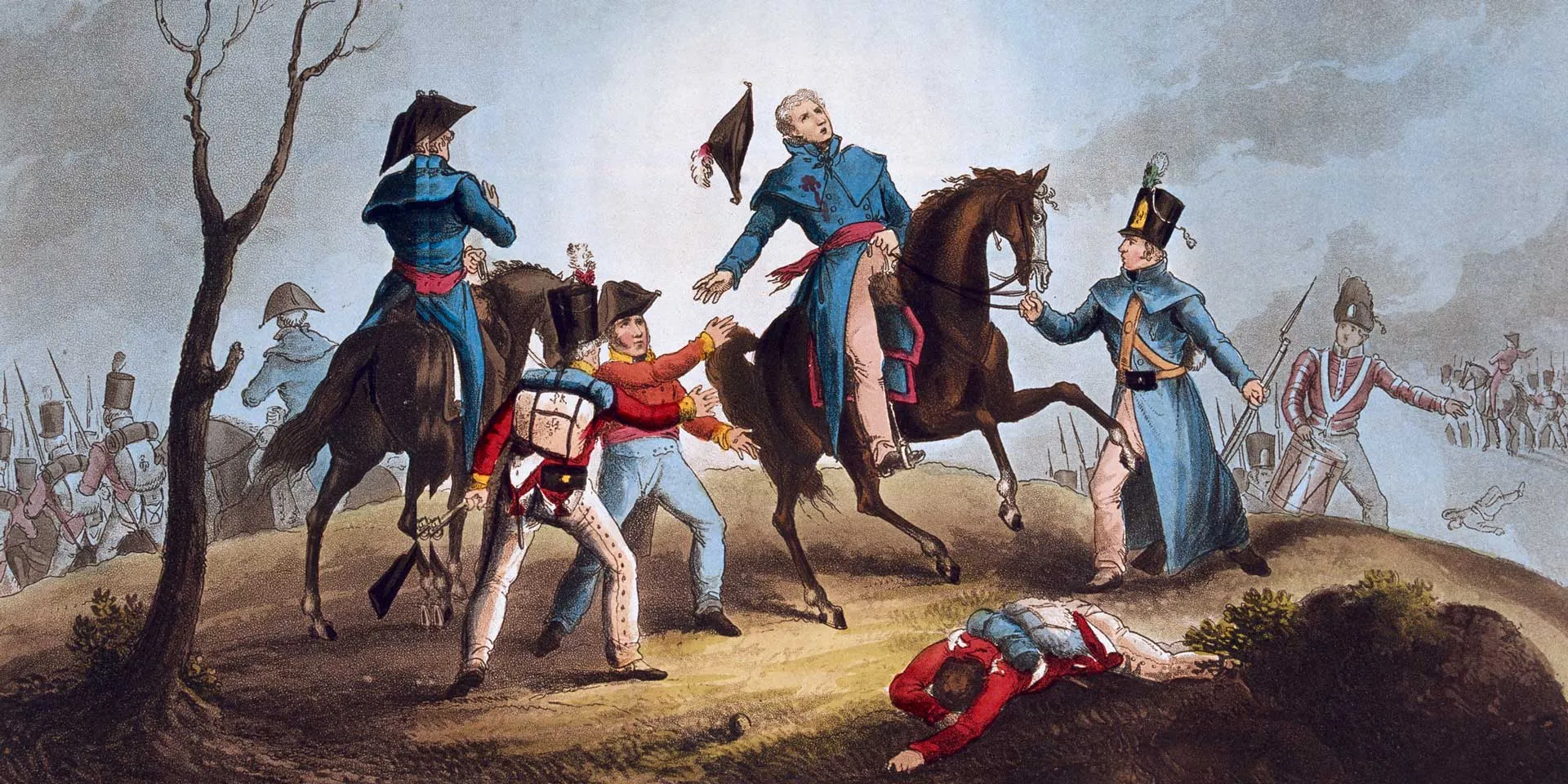
Credit: www.nam.ac.uk
Memorials And Honors
General Sir John Moore is remembered through various memorials and honors. These tributes celebrate his bravery and leadership. They ensure his legacy lives on for future generations.
Statues And Monuments
Several statues and monuments honor General Sir John Moore. One prominent statue stands in Glasgow’s George Square. It depicts Moore in military uniform. Another monument is in Shorncliffe, England. This marks the location of his training camp. Many people visit these sites to pay their respects.
Commemorative Events
Annual events also celebrate General Sir John Moore. Each year, a ceremony takes place in Corunna, Spain. This marks the anniversary of his death in battle. Another event occurs in his birthplace, Glasgow. These gatherings bring together admirers and historians. They reflect on his contributions and valor.
FAQs
What Happened To Sir John Moore?
Sir John Moore died during the Battle of Corunna in 1809. He was a British Army general. He led his troops against Napoleon’s forces in Spain.
What Did Sir John Moore Do?
Sir John Moore was a British Army general. He is famous for his leadership in the Peninsular War.
Who Won The Battle Of Corunna?
The British Army, led by Sir John Moore, won the Battle of Corunna against the French forces in 1809.
Who Wrote The Burial Of Sir John Moore?
Charles Wolfe wrote “The Burial of Sir John Moore. ” The poem commemorates the British general’s burial after the Battle of Corunna.
Conclusion
General Sir John Moore’s legacy continues to inspire many. His bravery and leadership stand out. He made a significant impact during his time. People remember him for his dedication and service. His story teaches us about courage and honor. Learning about him enriches our understanding of history.
His contributions will always be valued. Sir John Moore remains a symbol of true military excellence.


